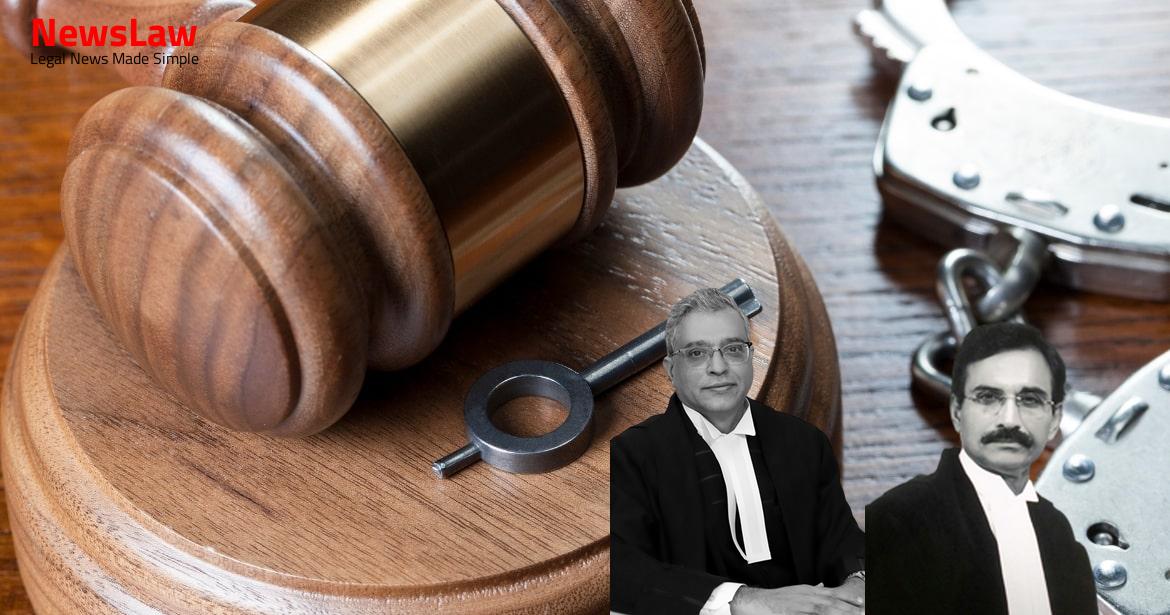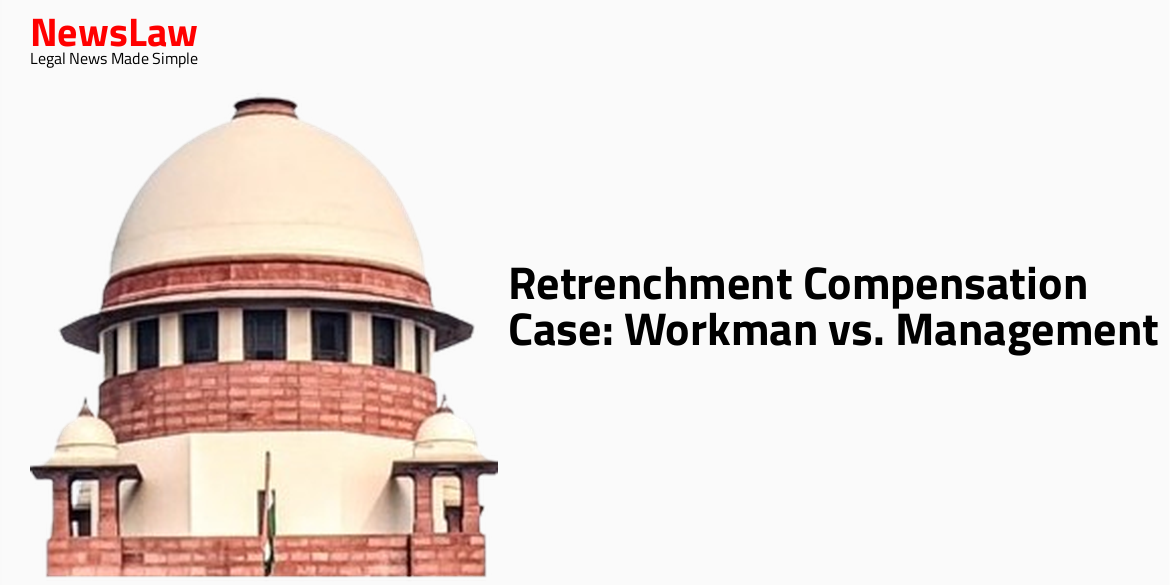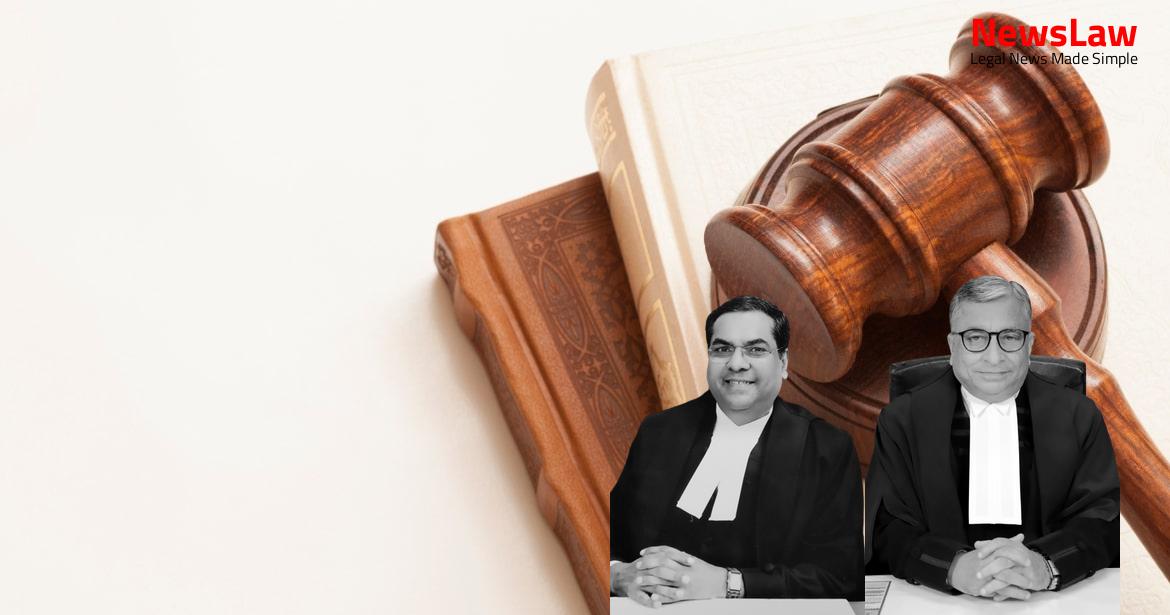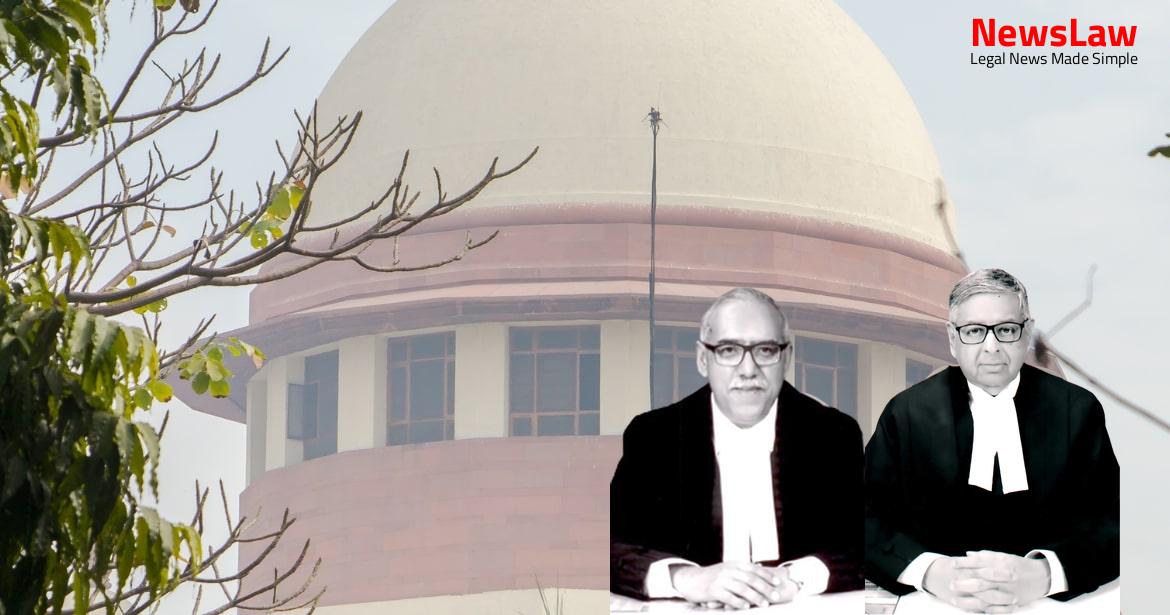Explore the nuances of a recent legal case focusing on the right to cross-examination in the securities market. The court’s in-depth analysis sheds light on the principles of natural justice and procedural fairness in regulatory proceedings. This summary examines the implications of the court’s decision on future cases within the financial sector, emphasizing the importance of due process and fair hearings. Stay tuned for a closer look at the intersection of law and securities regulation.
Facts
- SEBI launched an investigation into the unusual price movement of the Company’s shares between January 2005 to September 2005.
- The Company manipulated its profits through orchestrated deals, detected during the investigation.
- SEBI issued an interim order against 56 entities including the Company, its promoter-directors, clients, stockbrokers, and depositors under various sections of the SEBI Act.
- A show-cause notice was issued for violation of SEBI regulations related to fraudulent and unfair trade practices in the securities market.
- The notice was based on the Company making huge profits from undeclared business and sale of scrips, with uncertain sources of income.
- The manipulations led to an artificial increase in the scrip’s value, violating regulations aimed at preventing fraudulent practices in the market.
- SEBI restrained the Company and its directors from accessing the capital market and dealing in securities for one year based on certain circumstances.
- The Tribunal re-examined these circumstances and allowed the appeal by reversing SEBI’s findings.
- The Tribunal held that extraordinary profits alone cannot be considered as a violation of the law.
- It found that public statements made by the Company were in the ordinary course of business.
- The Tribunal concluded that alleged links were not established and principles of natural justice were violated by not granting an opportunity for cross-examination.
Also Read: Balancing Power and Transparency: Electoral Bonds Struck Down, Disclosure Mandated
Issue
- Scope and ambit of statutory appeal to the Supreme Court under Section 15Z of the Act against an order passed by the Securities Appellate Tribunal.
- Determining whether the advertisements dated 07.04.2005 and 20.04.2005 violated Regulations 3 (a), (b), (c), (d) read with Regulation 4 (1), (2) (k) and (r) by misleading and defrauding investors.
Also Read: Recall of Resolution Plan Approval: Legal Analysis
Arguments
- The petitioner argued that the Tribunal erroneously examined the order passed by SEBI, treating each incident separately
- The petitioner emphasized that the Tribunal’s approach of considering the events as independent episodes led to incorrect conclusions
- It was contended that SEBI’s findings on the sudden increase in profit were misguided
- Reference was made to the case of K.L. Tripathi v. State Bank of India and Ors. (1984) 1 SCC 43 in support of the argument
- The petitioner disagreed with the Tribunal’s stance on the right of cross-examination, stating that it would hinder SEBI’s functionality
- Legal precedents such as K.L. Tripathi, Tara Chand Vyas, and Jah Developers were cited to support the argument against the Tribunal’s position
- Shri Singh distinguishes the cases cited by Shri Gaggar and references precedents to argue against the right to cross-examine.
- References are made to cases such as M/s Vijay Textile v. Securities and Exchange Board of India, Securities and Exchange Board of India v. Rakhi Trading Private Limited, and Securities and Exchange Board of India v. Kishore R. Ajmera.
- The conclusions drawn by the Board based on the assumption of orchestrated sales through artificial purchase and sale are challenged by Shri Gaggar, citing decisions of the Court in Rakhi Trading and Kishore Ajmera.
- Judgments of the Court in Aligarh Muslim University and A.S Motors are referenced to support the argument that witness examination should not be insisted upon as an empty formality.
- Shri Gaggar emphasizes that principles of natural justice would be violated if an opportunity to cross-examine is not granted, particularly when material adverse to the party is considered by SEBI.
- It is argued that the Company faced no prejudice as they were given an opportunity to respond to the material relied upon by the Board.
Analysis
- The Tribunal, in its appellate jurisdiction, found that there was no evidence to establish a sustainable link between the company and traders allegedly manipulating the company’s shares.
- The Tribunal also noted that there was no material produced by the Respondent to support the charge of manipulative trading by the company.
- The company’s defense regarding transactions being in the exclusive knowledge of the stockbroker company was considered.
- SEBI’s investigation secured a letter from a director of a stockbroker company contradicting the company’s defense.
- The Tribunal’s conclusions were based on inferences drawn from the material available on record.
- The Tribunal reversed some of SEBI’s findings based on its own inferences from the documents on record.
- The issue of manipulation in the company’s accounts and share prices was addressed in the analysis.
- The Tribunal considered the company’s alleged false statements regarding its business operations and revenue projections.
- The jurisdiction and scope of the Supreme Court under Section 15Z in considering questions of law arising from Tribunal decisions were discussed.
- The issue of the right to cross-examine the author of a letter relied upon by SEBI in regulatory matters was raised.
- SEBI’s efforts to trace the buying and selling of the company’s shares in the market were highlighted.
- The Tribunal’s findings on specific announcements made by the company and the establishment of subsidiary companies were mentioned.
- The conclusion of the Tribunal regarding the application for a foreign exchange license and the revised application was outlined.
- The issue of right to cross-examine the author of a letter, if relied upon by SEBI, was examined.
- In Natwar Singh (supra), a deviation from the general rule of disclosure of relevant information was made based on the stage of the proceedings.
- Disclosure of materials relied on is sufficient for issuing a show cause notice or deciding whether to initiate an inquiry.
- All relevant information must be disclosed in adjudication proceedings.
- The Board considers the investigation report submitted by the Investigating Authority under Regulation 9 for issuing punitive measures under Regulations 11 and 12.
- Disclosure of material serves the purposes of decreasing errors in verdicts, protecting fairness in proceedings, and enhancing transparency in investigatory bodies and judicial institutions.
- Suppression of material focuses on the institutional impact, prioritizing the process over the outcome.
- The right to disclosure is not absolute and may be restricted to protect third-party interests and market stability.
- Statutes must be construed with regard to their context to understand the true meaning.
- Boundaries between questions of law and fact can be elusive.
- The UK Supreme Court formulated principles for appellate courts to interfere based on questions of law in Jones v. First Tier Tribunal.
- Non-disclosure of relevant information may render an order void if prejudice is proven.
- Disclosure of third-party personal and strategic information may be withheld to protect market stability.
- Courts use art and technique to find correct meanings by considering words in context.
- The respondent must establish that disclosure of the report would affect third-party rights and market stability.
- SEBI has a statutory obligation to follow natural justice principles in proceedings.
- Pragmatic approaches should be taken in determining issues of law and fact by tribunals and appellate courts.
- Specialist tribunals are best suited for determining certain issues over general appellate courts.
- Any person aggrieved by a decision or order of the Securities Appellate Tribunal can file an appeal to the Supreme Court within sixty days.
- The appeal must be on a question of law arising from the order.
- The Supreme Court may allow the appeal to be filed within a further sixty days if there was sufficient cause preventing the timely filing.
- Videocon International Ltd. v. Securities Exchange Board of India is a case that dealt with Section 15Z.
- The court observed that the right of appeal can be absolute or limited, depending on the specific provisions of the section.
- The Company’s claim for cross-examining was considered insignificant as the Tribunal’s findings of fact were not interfered with.
- Tribunal arrived at conclusions based on independent facts regarding misleading advertisements and manipulation of scrip prices and profits.
- Tribunal’s conclusion that the allegations could be proved was noted.
- No necessity for the Tribunal to establish a right of cross-examination in all cases.
- Cross-examination issue deemed as academic and not required based on evidence on record.
- Findings of the Tribunal set aside only on the issue of cross-examination, while upholding the decision on all other grounds.
Decision
- Civil Appeal No 2104 of 2009 dismissed
- Observations of the Tribunal regarding the right of cross-examination set aside
- Question of law regarding the right of cross-examination left open for future decision by the Court
Case Title: SECURITIES & EXCHANGE BOARD OF INDIA Vs. MEGA CORP.LTD. (2022 INSC 344)
Case Number: C.A. No.-002104-002104 / 2009



